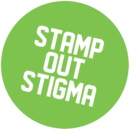Recovery Month and Suicide
By Anna Rowe, Stamp Out Stigma Team
While awareness of suicide prevention is emphasized in September, it is also important to recognize that September is National Recovery Month.
Established in 1989, National Recovery Month is a significant observance focused on recognizing and supporting people recovering from substance use disorders and mental health conditions. The observance showcases the success of effective treatment and recovery methods while celebrating the strength and accomplishments of individuals in recovery. The journey towards recovery may seem challenging, but there are ways to feel supported, practice healthy methods, and heal.
If you’re feeling overwhelmed or finding it difficult to address substance use challenges, recovery programs offer the essential tools and support needed to facilitate healing and transformation. According to SAMSHA, 68% of people who complete drug and alcohol detox programs report their treatment to be successful. Those who are seeking recovery typically participate in a range of therapeutic activities, which may include group or individual sessions, educational classes, and evidence-based treatments. The purpose of recovery programs is to minimize the effects of continuing use. Those who have successfully completed recovery programs are able to live self-directed lives in better health and wellness. Being in recovery is when positive changes and values become a part of a voluntary adopted lifestyle. To practice and engage in recovery, especially during the month of September, individuals can show support and recognize progress of recovery.
How to be a supportive friend or loved one during Recovery Month:
- Educate yourself and others about recovery. Becoming a more informed advocate is a powerful way to reduce the stigma surrounding substance use disorders and mental health and to help create a more supportive environment for those in recovery.
- Check in and actively listen. Offering encouragement and support is important in helping someone meet their goal of recovery. Actively listening and being there for someone when they are participating in treatment can significantly improve the effectiveness of recovery. One study even shows that supportive family relationships are associated with decreased risk of recurrence of substance use following treatment.
- Encourage healthy habits. Create a nurturing environment to allow for routine and structure and provide practical assistance to help them build and maintain healthy habits.
How to practice healthy recovery habits:
- Celebrate recovery successes and milestones. No victory is too small to celebrate. This month is meant to recognize and honor the accomplishments and healing efforts of each individual’s recovery journey. Take yourself out to a nice dinner, celebrate with friends, or buy something new. It’s important to understand the hard work and dedication behind the process of recovery.
- Prioritize your lifestyle. Establishing healthy coping strategies and following a routine can allow for immense growth and healing during your time of recovery. If you find yourself overwhelmed by triggers, use calming techniques such as deep breathing, muscle relaxation, journaling, or reaching out to a friend.
- Talk to a mental health professional. Talking to a professional is crucial for individuals in recovery, as they can provide expert guidance and establish a personalized treatment plan. They can also assist in developing healthy coping mechanisms and strategies to deal with stress, anxiety, or depression that might arise during recovery.
Ways to uplift the recovery community:
- Share your story. It can feel empowering and comforting to not only listen to stories that provide assurance of the possibility for recovery, but to also share your own. You may feel more connected with your community by letting others know your experience.
- Volunteer. Many recovery programs rely on volunteer work to keep the facility running. By giving your time, you are allowing programs to succeed in events, mentoring, and supporting individuals on their recovery journey.
- Get involved with SAMSHA Recovery Month events. Follow this link to participate in various activities that support and celebrate Recovery Month.
Recovery Month is powerful. No matter what an individual is going through, overcoming a challenge takes dedication, support, and healing. Recovery Month recognizes the resilience and achievements of those in recovery, the ongoing efforts of recovery treatment, and the strong support systems for those in recovery. If you or someone you know is experiencing the journey towards recovery, take some time to reflect how far you or they have come. Appreciate the support and resources available to you and recognize how dedicated the recovery community is towards leading a better life.


